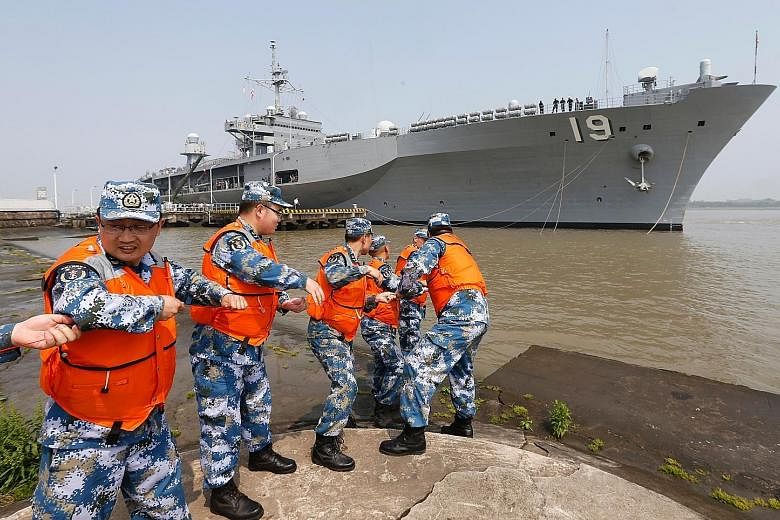The risk of an accidental armed clash between China and the United States in the South China Sea is "still pretty low", says Rear Admiral Mark Montgomery, Director of Operations of the US Pacific Command.
The greater risk was a clash between civilian vessels of different countries, he said at the Pacific Command's headquarters in Hawaii, from where the 51-year-old commands five of the US Navy's 10 aircraft carriers, about 2,500 military aircraft and up to 400,000 military personnel.
"I think these are professional navies. The highest risk is associated with non-military vessels (which) have poor… communications systems on board," he said in remarks that come after a series of high-profile stand-offs in South-east Asia over fishing rights.
"Anywhere in the world, my worst maritime experiences have been with fishing boats."
His comments to The Straits Times were made at a briefing to journalists visiting under the East-West Center's Jefferson Fellowship programme.
Since last year, Indonesia has impounded and destroyed fishing boats of other countries, including China. Vietnamese fishermen have complained of their boats being rammed by Chinese vessels. There have also been incidents involving Indonesia, Malaysia, China and Taiwan over fishing vessels in the South China Sea and Malacca Strait.
The scramble by the region's fishing fleets for steadily declining catches comes on top of disputes over islands, reefs and shoals in the South China Sea - adding a dangerous ingredient to the mix, analysts say. China claims most of the South China Sea. Several Asean countries, in particular Vietnam and the Philippines, also claim parts of the resource-rich area, one of the world's top shipping lanes. Beijing has stepped up land reclamation and expanded islands in the waters, including building airstrips and stationing military assets. US warships have conducted freedom of navigation operations in the area, which China has called provocative.
But Rear Admiral Montgomery said China's navy was very professional in terms of seamanship and there was a mechanism for resolving issues. "We have a weekly e-mail on our military-to-military dialogue and there is a significant amount of interaction," he said.
He cited the Code for Unplanned Encounters at Sea, or Cues, a set of procedures endorsed by naval leaders from more than 20 countries. Cues provides standards for communication, safety procedures and manoeuvring instructions for naval ships and aircraft encountering each other.

